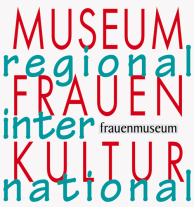[Please scroll down for English]
Küratör
Museum Frauenkultur Regional-International
Fürth, Bavyera, Almanya
1989’dan beri Bir Dünyanın Kadınları – Kadın Günlük Yaşamını Kültürlerası Araştırma Merkezi ve diğer kuruluşlar için kadın kültürü ve kadın günlük yaşamı konulu bir çok serginin küratörlüğünü yaptı.
Bölgesel kadın tarihi, kültürel ve tarihsel çalışmalar ve insan hakları konulu yayınları vardır.
1997-2015 yılları arasında Coburg Uygulamalı Bilimler ve Sanat Üniversitesi’nde Uluslararası Sosyal Hizmetler (B.A.)Bölümü başkanlığını yaptı.
2014’ten beri Berlin Alice Salomon Üniversitesi’nde, İnsan Hakları Uzmanı olarak Sosyal Hizmet dersi (M.A.) veriyor.
 Museum Frauenkultur Regional-International
Museum Frauenkultur Regional-International
Almanya, Fürth, Bavyera
http://www.frauenindereinenwelt.de
Curator
Museum Frauenkultur Regional-International
Furth, Bavaria, Germany
Since 1989 curator of a multitude of exhibitions about women’s culture and every-day lives for “Women in One World. Centre for international and intercultural research on women’s daily lives” and other institutions.
Author of a great number of publications about regional women’s history, cultural-historical studies and human rights.
1997 -2015 head of the study program International Social Work and Development (B.A.), Coburg University of Applied Sciences and Arts
Since 2014 lecturer at Alice Salomon University Berlin; Social Work as a Human Rights Profession (M.A.)
 Museum Frauenkultur Regional-International
Museum Frauenkultur Regional-International
Germany, Furth/Bavaria
http://www.frauenindereinenwelt.de
Recognizes and affirms all forms of cultural diversity at local, regional and international levels and tries to reflect this diversity in the policies and programs of the museum.
The words in the name of the museum “Regional – International” indicate the concept of the museum. All exhibitions of the museum show aspects of women’s everyday lives around the world in a comparative way, thus enabling the visitors to gain new insights.
The comparative approach of the exhibition concepts helps to change perceptions about “me” and “the stranger” and turns assumed contradictions into similarities.
